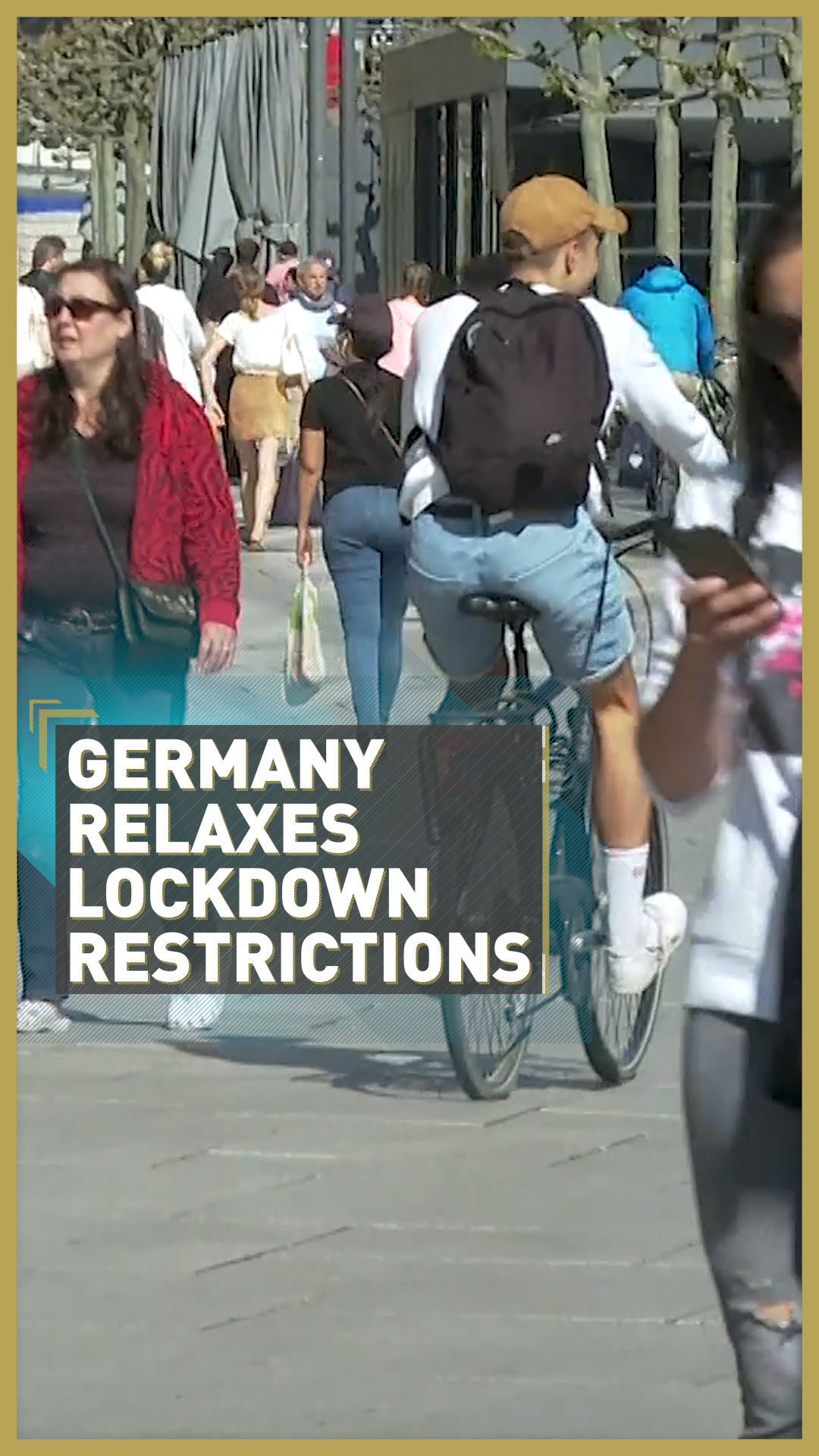Like many shops in Germany, the Berlin boutique store Soul Objects has had a tough few weeks. Restrictions designed to slow the spread of COVID-19 have hurt business.
"Walk-in clients, obviously we had zero," said Oliver Hausner, the store's co-owner. "So all that fell away. Luckily enough, we had our online store which was established beforehand."
But now, like many shops around the country, its doors are open again. For about a month, only shops considered essential were allowed to open. But starting this week, all shops with a surface area of up to 800 square meters can serve customers.
Germany hopes to reopen for business gradually as new infection rates fall and with a robust capacity for testing. However, leaders are urging caution.
"We are not living in the final phase of the pandemic, but still at the beginning," said Chancellor Angela Merkel, speaking before the German parliament. "We will have to live with the virus for a long time."
Among the public, there are mixed feelings about the push to return to normality.
"It's good for trade and commerce, but you shouldn't open too much," said a man sitting in one of Frankfurt's main shopping streets. "Otherwise, in three or four weeks, we might be back where we were four weeks ago."
Another woman said she thought it was a mistake.
"People are going to get sick," she said. It's not ok. They shouldn't open up. They should wait two or three months... until August, and then maybe take it slowly."
But Europe's largest economy is hoping to limit the damage. The head of Germany's council of economic experts said this week he expects growth to fall by at least 5.5 percent this year. Restaurants remain closed and large gatherings have been called off through August.
At the moment, health officials here believe the virus's reproduction rate – the average number of people a sick person infects – is less than one. However, they have warned if that number goes back above one, things may close again.








 User Center
User Center My Training Class
My Training Class Feedback
Feedback













Comments
Something to say?
Log in or Sign up for free